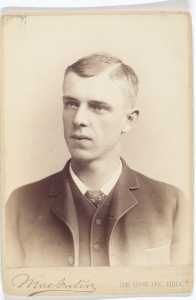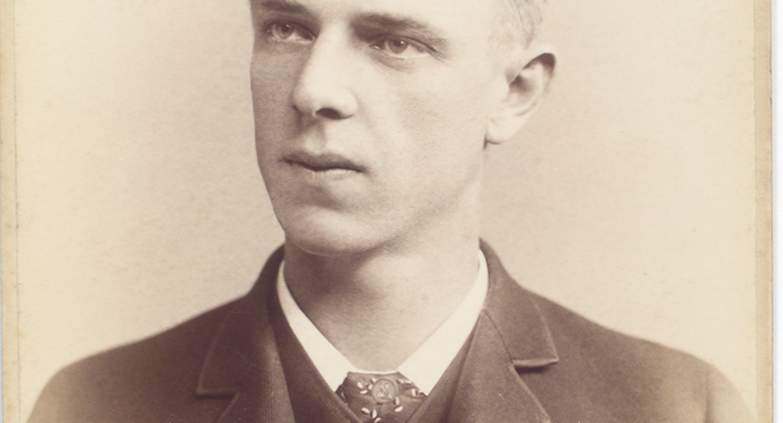October 1, 1891: Beaneaters clinch National League pennant amid controversy
The Boston Beaneaters made a remarkable run in September 1891 to overtake the Chicago Colts, and they ultimately clinched the National League pennant on October 1 amid Chicago’s protests that Boston had gained an unfair advantage with the help of other teams in the league.
Chicago’s protests that Boston had gained an unfair advantage with the help of other teams in the league.
The Colts had held the league lead for most of the season, never more than 4½ games behind when they weren’t in first place. The team was led by Cap Anson, who had been the player-manager of the franchise since 1879, with five National League pennants to his credit.1
The Beaneaters went on a 16-game winning streak that started on September 16 when they were 6½ games out of first place behind the Colts. (During the streak there was a tie game on September 17.) Boston took sole possession of first place on September 30. Then on October 1 the Beaneaters, 1½ games ahead of second-place Chicago, defeated the Philadelphia Phillies, 6-1. With only two games left in the season, the win clinched their first pennant since 1883.
Philadelphia, managed by Harry Wright, was 17½ games behind Boston when the teams faced off on October 1. The Phillies boasted an outfield of Sam Thompson, Ed Delahanty, and Billy Hamilton, all future Hall of Famers. Twenty-four-year-old Kid Gleason was their best pitcher. (He would become a full-time infielder later in his career.) However, left-hander Duke Esper drew the starting pitcher assignment against the Beaneaters.
Boston’s manager was Frank Selee, who was in his second season at the helm. He gave the ball to 29-year-old veteran John Clarkson, a control specialist who was the staff’s ace.
The Boston Globe reported that the contest was played before 1,000 fans at the Philadelphia Baseball Grounds. It was the first of a three-game series to end the season.
Neither team was able to push across runs in the first three innings. One of the highlights of the game was Boston’s five double plays, with shortstop Herman Long involved in all of them. Two of the twin killings occurred in the first and second innings.
In the top of the fourth inning, Boston broke the scoreless tie with four runs. Billy Nash led off with a single and scored on Tommy Tucker’s triple. Joe Quinn grounded out to shortstop Bob Allen, who was able to hold Tucker at third base.
Charlie Bennett drew a walk and Clarkson reached first base on a third strike muffed by catcher Jack Clements. Long hit a sharp grounder to Allen, who misplayed the ball, and Tucker scored the second run. Harry Stovey’s single to right field scored Clarkson and Long. Charlie Ganzel ended the inning with an out to Allen.
In the bottom of the fourth, Philadelphia mustered its only run of the game when Delahanty reached base on first baseman Tucker’s error on a throw by Long. After stealing second base, Delahanty scored on Al Myers’ hit.
Long aided the Beaneaters’ defensive efforts with his third double play in the fifth inning.
Boston scored two more runs in the top of the sixth, facilitated by two Phillies errors. With Bobby Lowe and Stovey on base, Ganzel delivered a two-run single.
Long participated in two more double plays in the sixth and seventh innings. The game was called at the end of the seventh due to darkness with a final score of 6-1.
For just a seven-inning affair, the game was sloppily played, as Boston issued six walks and committed three errors, while the Phillies accounted for six walks and four errors. Boston’s five double plays and the Phillies’ errors were key factors in the final score.
Clarkson went the distance for Boston, giving up six hits in recording his 33rd win of the season. He went on to record a career 328-178 won-lost record, which earned him a bronze plaque in the National Baseball Hall of Fame.
Esper yielded only six hits but was plagued by his teammates’ four errors in the two innings Boston scored its runs. His record for the season ended at 20-15.
The Beaneaters’ victory clinched their first of three consecutive pennants. They captured five league championships during the decade under Selee.
The second-place Chicago club suffered a huge disappointment as the season concluded. They had played superbly from July through September, losing only nine games each month, while winning 17 in July and 16 in both August and September. The Colts were in first place from July 21 through September 29. However, their season came down to their final four games, all of which they lost. They wound up 3½ games back of Boston.
Chicago had bitter feelings toward Boston about how the Beaneaters won the pennant. Chicago’s ownership contended that the Eastern clubs in the league colluded with Boston to allow the Beaneaters to win the pennant.2 They believed there was jealousy of the Chicago team and a conspiracy by former players of the ill-fated Players’ League in 1890 to undermine Anson’s drive for the pennant.3
Chicago President Jim Hart and Anson were so convinced of collusion that they sent a telegram to National League President Nicholas Young requesting proof that there was consent by two-thirds of the teams in the league for Boston to play doubleheaders with Pittsburgh on September 19, Brooklyn on September 23, and New York on September 29 and 30. (Boston won all eight of those games.) Chicago asserted that Boston scheduled the doubleheaders toward the end of the season to make up for previously postponed games, thereby providing opportunities to collect additional wins. Chicago hadn’t taken the same approach; at the end of the season, Boston had indeed played three more games than Chicago. Chicago believed Boston independently arranged the makeup games with its opponents. Chicago’s ownership wanted those extra games voided if the required leaguewide consent wasn’t obtained. However, Young said he had no authority to declare any game voided and the teams’ presidents would have the final say. The Cleveland club later reported that it had given consent for the doubleheaders in question and believed the other clubs would reply similarly.4
Chicago further claimed that the New York team had manipulated its pitching assignments, holding back its best pitchers, in games with Boston. It was said that Cleveland was inspired by promise of a reward from Boston should the Beaneaters defeat Chicago in their final series.5
In the end the league took no action against Boston or other teams, and nothing ever came of Chicago’s assertions. However, reactions in several newspapers across the country indicated a belief that the New York club had truly been a culprit in the situation, and thus baseball’s integrity had been damaged.6
Anson maintained for the rest of his life that he was unfairly targeted by former players of the Players’ League who obstructed his chances of winning the National League championship in 1891.
Sources
In addition to the sources cited in the Notes, the author consulted the following:
Baseball-Reference.com.
“Still They Win: Boston Getting a Firmer Hold on Pennant,” Boston Globe, October 2, 1891: 5. (All game play-by-play details and box-score information were obtained from this source.)
Notes
1 The Chicago franchise was named the White Stockings from 1876 to 1889. Beginning in 1890 they became the Colts and eventually the Cubs in 1902.
2 “Bowed Down With Sorrow: The Chicago Team Sorely Aggrieved at the Loss of the Pennant,” Chicago Tribune, October 2, 1891: 6.
3 When National League players jumped to the rival Players’ League formed in 1890, Anson was one of their vocal critics. His role in squashing the new league angered many of his former players, and this carried over into the 1891 season.
4 “Another Pennant: It Is Assured to the Boston Leaguers,” Boston Daily Advertiser, October 2, 1891.
5 “Plot Against Chicago,” Chicago Tribune, October 1, 1891: 6.
6 “The Soiled Pennant,” Chicago Tribune, October 4, 1891: 13.
Additional Stats
Boston Beaneaters 6
Philadelphia Phillies 1
Philadelphia Baseball Grounds
Philadelphia, PA
Corrections? Additions?
If you can help us improve this game story, contact us.


